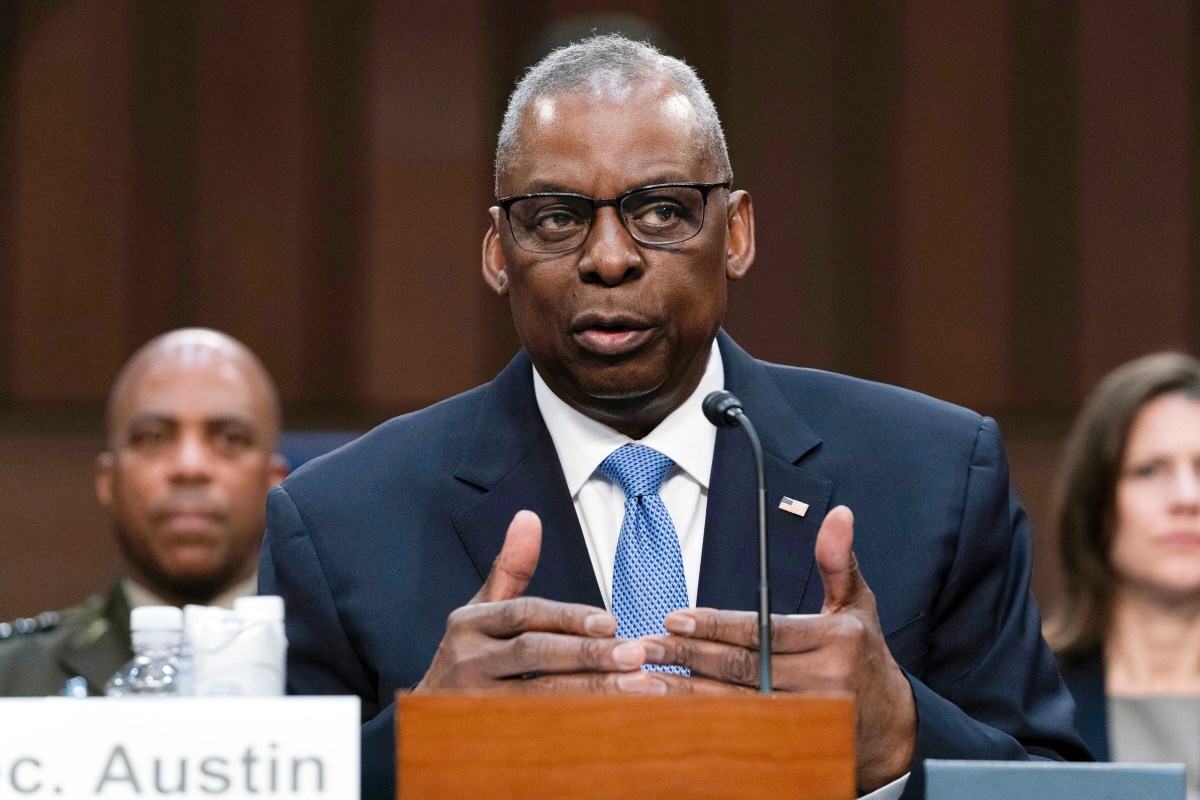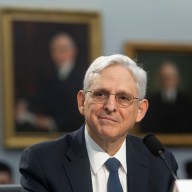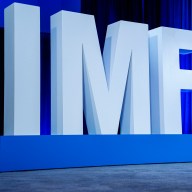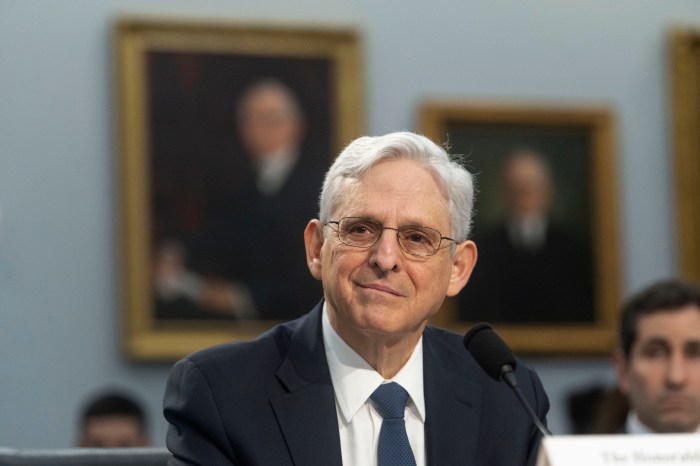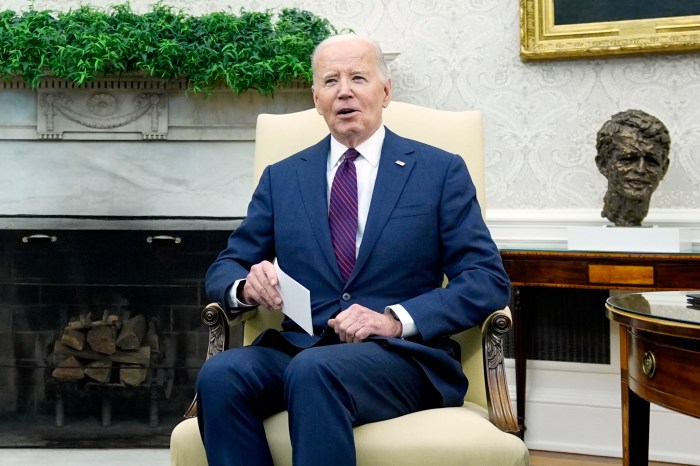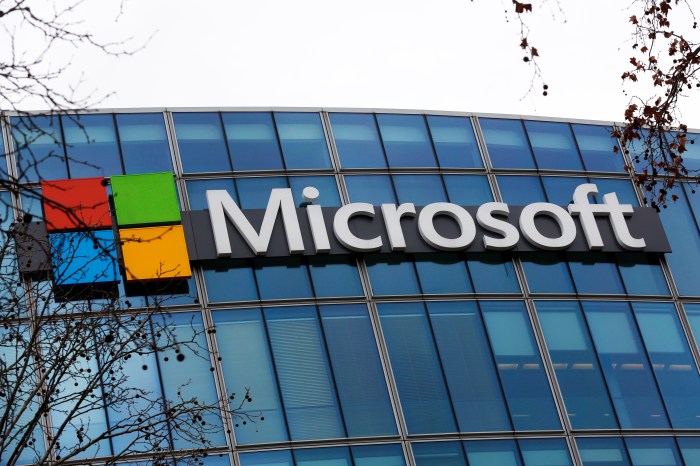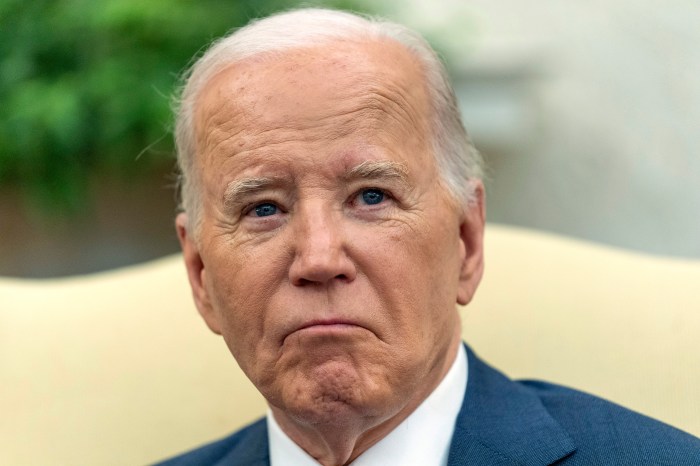WASHINGTON (AP) — Defense Secretary Lloyd Austin spoke with China’s national defense minister Tuesday morning, in the latest in a series of U.S. steps to improve communications with the Chinese military and reduce unsafe and aggressive incidents in the Indo-Pacific.
It was the first time Austin has talked to Adm. Dong Jun and the first time he has spoken at length with any Chinese counterpart since November 2022. The call, which lasted a bit more than an hour, comes as Secretary of State Antony Blinken is expected to travel to China this month for talks.
Maj. Gen. Pat Ryder, Pentagon press secretary, said that Austin “emphasized the importance of continuing to open lines of military-to-military communication” between the United States and the People’s Republic of China. And he underscored the importance of respect for freedom of navigation on the seas, especially in the South China Sea.
Washington and Beijing have been working to expand communications and ease escalating tensions. Military-to-military contact stalled in August 2022, when Beijing suspended all such communication after then-House Speaker Nancy Pelosi’s visit to Taiwan, which China claims as its own.
The thaw in relations between the two world powers got a kick-start last November when President Joe Biden and China’s President Xi Jinping met on the sidelines of the Asia-Pacific Economic Cooperation summit in San Francisco. About a month later, Gen. CQ Brown, chairman of the Joint Chiefs of Staff, spoke with his Chinese counterpart in a video call — in the first senior military-to-military contact since the Pelosi visit.
Austin’s call with Dong has been widely anticipated, but the admiral was only appointed to the defense job in December. Previous defense minister Wei Fenghe turned down a Pentagon request to speak with Austin last year after the U.S. shot down a Chinese spy balloon that had floated across the country. Austin had previously met with Wei in 2022 on the sidelines of a defense conference in Cambodia.
Defense officials are concerned about unsafe and unprofessional incidents involving the U.S. and Chinese militaries in the Pacific.
Pelosi’s visit sparked a surge in military maneuvers by China. Beijing dispatched warships and aircraft across the median line in the Taiwan Strait, claiming the de facto boundary did not exist, fired missiles over Taiwan itself, and challenged established norms by firing missiles into Japan’s exclusive economic zone.
During the following two years, U.S. military officials repeatedly objected to a range of unsafe intercepts by Chinese aircraft in the Pacific and other dangerous incidents. Some of those confrontations have ebbed a bit, but the U.S. has been concerned about aggressive behavior by Chinese vessels against Philippine ships in the South China Sea.
Ryder said that Austin in his conversation with Dong also discussed Russia’s war in Ukraine, concerns about North Korea and the importance of peace and stability across the Taiwan Strait.
A senior defense official told reporters that Austin’s call on Tuesday gives the U.S. the opportunity to prevent ongoing competition with China from veering into conflict. The official, who spoke on condition of anonymity to provide a preview of the call, said the U.S. hasn’t seen any unsafe or unprofessional intercepts of American aircraft since last November, but China’s coercive behavior toward Philippines’ ships risks escalation.
U.S. and Chinese defense officials met earlier this month in Hawaii to discuss aggressive ship and aircraft incidents between the two militaries in the Pacific region. The two-day China-U.S. Military Maritime Consultative Agreement meeting included about 18 military and civilian personnel from each side and it was the first time since 2019 that it was held in person. There was a virtual meeting in 2021, during the COVID-19 pandemic.

